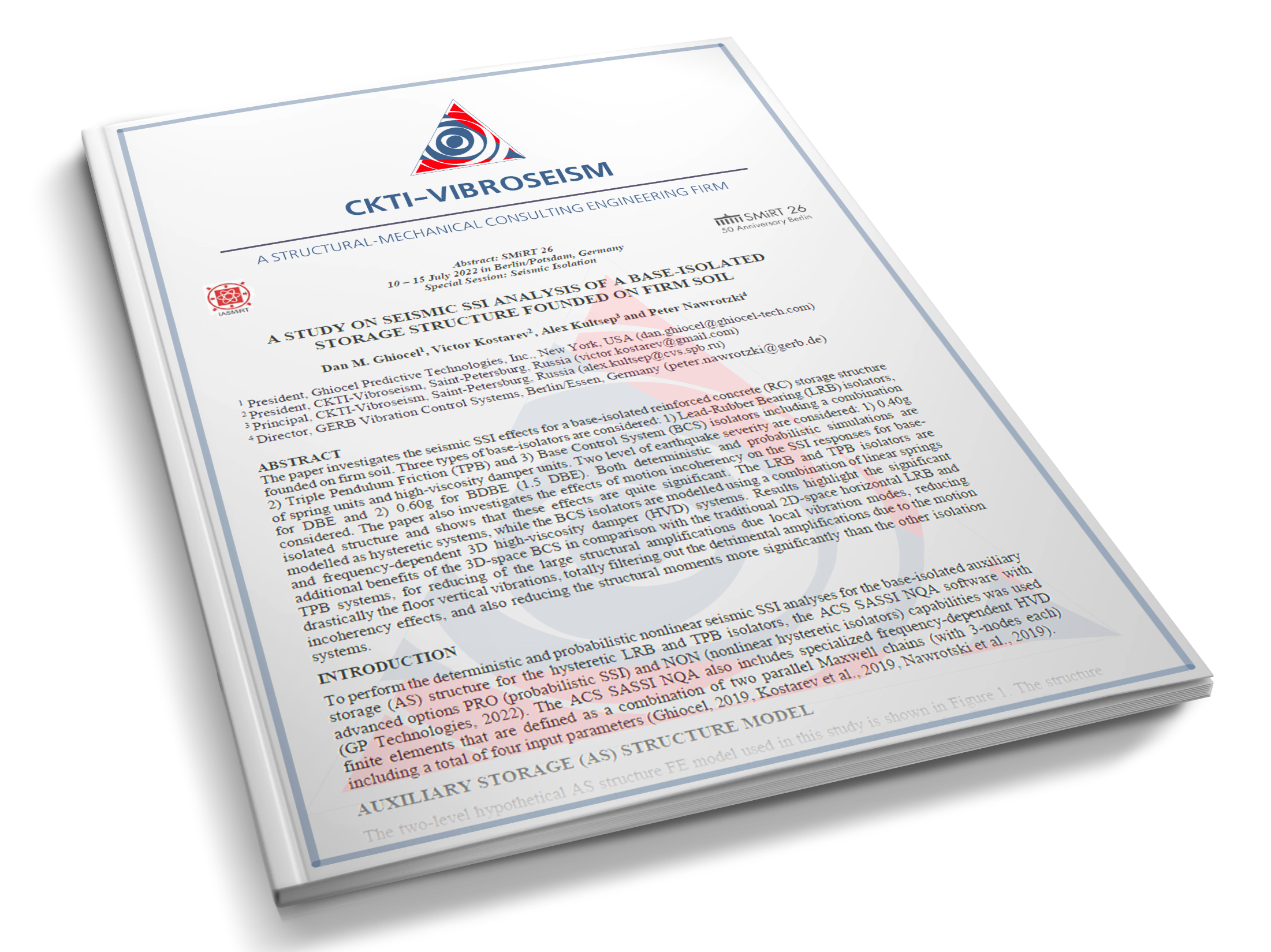A STUDY ON SEISMIC SSI ANALYSIS OF A BASE-ISOLATED STORAGE STRUCTURE FOUNDED ON FIRM SOIL
Abstract: SMiRT 26, Special Session: Seismic Isolation. Berlin/Potsdam, Germany, July 10-15, 2022

- Autors: : Dan M. Ghiocel, Peter Nawrotzki, Кульцеп А.В. [Alexander V. Kultsep], Костарев В.В. [Viktor V. Kostarev]
- Publisher: English
- N°: 51
- Library: Conference Papers
- Year: 2022
- File: fr1c5
Hits: 3144
The paper investigates the seismic SSI effects for a base-isolated reinforced concrete (RC) storage structure founded on firm soil. Three types of base-isolators are considered: 1) Lead-Rubber Bearing (LRB) isolators, 2) Triple Pendulum Friction (TPB) and 3) Base Control System (BCS) isolators including a combination of spring units and high-viscosity damper units. Two level of earthquake severity are considered: 1) 0.40g for DBE and 2) 0.60g for BDBE (1.5 DBE). Both deterministic and probabilistic simulations are considered. The paper also investigates the effects of motion incoherency on the SSI responses for base-isolated structure and shows that these effects are quite significant. The LRB and TPB isolators are modelled as hysteretic systems, while the BCS isolators are modelled using a combination of linear springs and frequency-dependent 3D high-viscosity damper (HVD) systems. Results highlight the significant additional benefits of the 3D-space BCS in comparison with the traditional 2D-space horizontal LRB and TPB systems, for reducing of the large structural amplifications due local vibration modes, reducing drastically the floor vertical vibrations, totally filtering out the detrimental amplifications due to the motion incoherency effects, and also reducing the structural moments more significantly than the other isolation systems.
 CKTI-Vibroseism Ltd.
CKTI-Vibroseism Ltd. 
